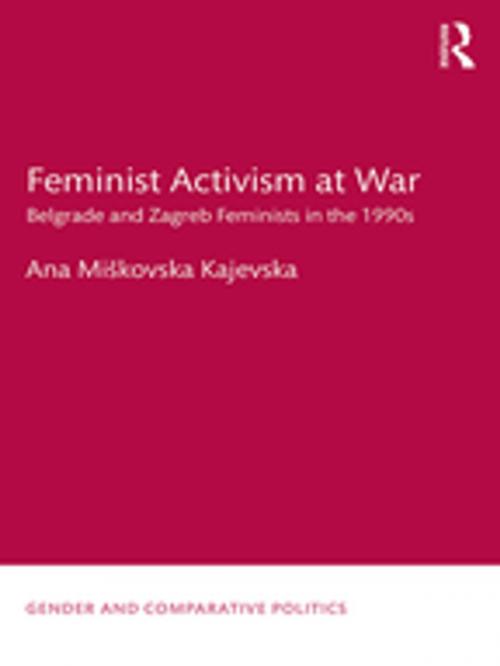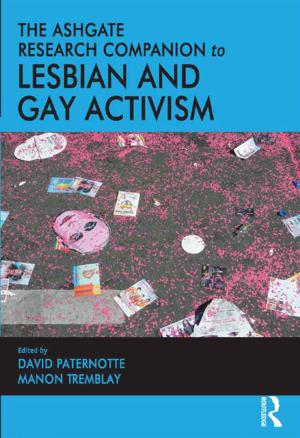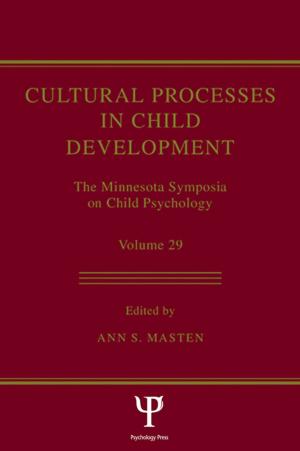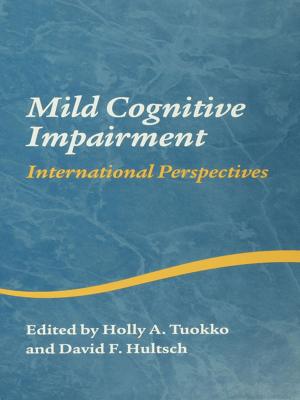Feminist Activism at War
Belgrade and Zagreb Feminists in the 1990s
Nonfiction, Social & Cultural Studies, Political Science, International, Foreign Legal Systems, Social Science, Gender Studies, Women&| Author: | Ana Miškovska Kajevska | ISBN: | 9781315520759 |
| Publisher: | Taylor and Francis | Publication: | May 25, 2017 |
| Imprint: | Routledge | Language: | English |
| Author: | Ana Miškovska Kajevska |
| ISBN: | 9781315520759 |
| Publisher: | Taylor and Francis |
| Publication: | May 25, 2017 |
| Imprint: | Routledge |
| Language: | English |
This book describes, compares, explains, and contextualises the positionings, i.e. discourses and activities, which feminists in Belgrade, Serbia and Zagreb, Croatia produced in relation to the (post-)Yugoslav wars of the 1990s. Two types of positionings are analysed: those which the feminists have produced on the (sexual) war violence and those which they have produced on each other.
Applying a Bourdieuian framework and using interviews with key feminist and peace activists in the region alongside a thorough examination of organisational documents and printed media articles, Ana Miškovska Kajevska challenges the common suggestion that the outbreak of the war violence in 1991 led to the same reorganisation of the Belgrade and Zagreb feminist fields. She corrects the understanding that the activists in each city, who had up until then worked together without tensions, divided at the same time and in the same manner into antinationalists and nationalists and began clashing with each other because of the different war-related positionings. Miškovska Kajevska explains further that the terms ‘antinationalist’ and ‘nationalist’ were not completely value-free and objective, and had different meanings attached to them. These designations were an essential part not only of the local and international efforts to stop the (sexual) war violence, but also of the struggle for legitimacy among the feminists in each city – endeavours in which many Western (feminist) academics, activists, and funders were involved, too.
In addition to providing insights into the situation in Croatia and Serbia, this book will also help increase the understanding of intra-feminist dynamics in other regions of the world which are dominated by nationalism and war violence, and where the work of the local feminists is closely intertwined with – and often dependent on – these activists’ contacts with foreign academic, funding, activist, and/or political entities.
This book describes, compares, explains, and contextualises the positionings, i.e. discourses and activities, which feminists in Belgrade, Serbia and Zagreb, Croatia produced in relation to the (post-)Yugoslav wars of the 1990s. Two types of positionings are analysed: those which the feminists have produced on the (sexual) war violence and those which they have produced on each other.
Applying a Bourdieuian framework and using interviews with key feminist and peace activists in the region alongside a thorough examination of organisational documents and printed media articles, Ana Miškovska Kajevska challenges the common suggestion that the outbreak of the war violence in 1991 led to the same reorganisation of the Belgrade and Zagreb feminist fields. She corrects the understanding that the activists in each city, who had up until then worked together without tensions, divided at the same time and in the same manner into antinationalists and nationalists and began clashing with each other because of the different war-related positionings. Miškovska Kajevska explains further that the terms ‘antinationalist’ and ‘nationalist’ were not completely value-free and objective, and had different meanings attached to them. These designations were an essential part not only of the local and international efforts to stop the (sexual) war violence, but also of the struggle for legitimacy among the feminists in each city – endeavours in which many Western (feminist) academics, activists, and funders were involved, too.
In addition to providing insights into the situation in Croatia and Serbia, this book will also help increase the understanding of intra-feminist dynamics in other regions of the world which are dominated by nationalism and war violence, and where the work of the local feminists is closely intertwined with – and often dependent on – these activists’ contacts with foreign academic, funding, activist, and/or political entities.















